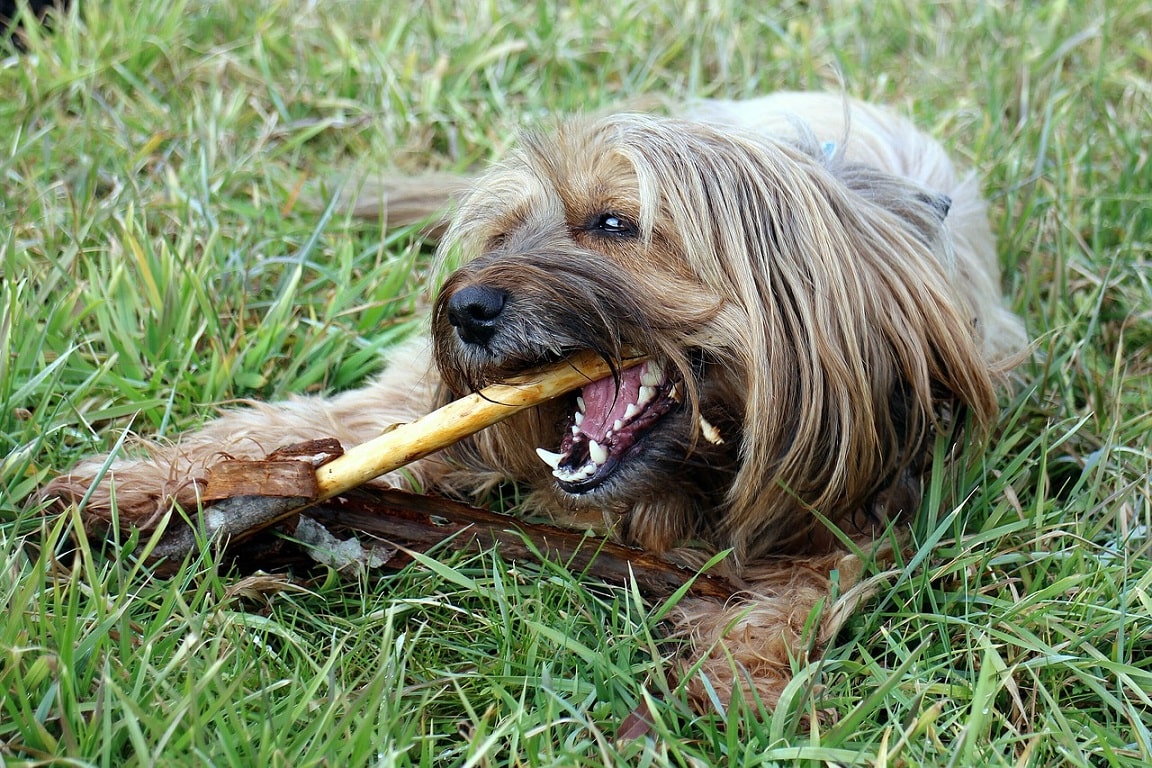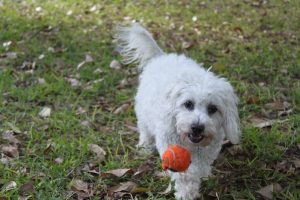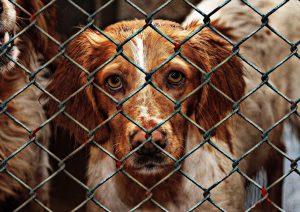Refusing your pet’s sloppy smooch because of his bad breath?
While your dog might think that you appreciate his kisses, it might also leave him puzzled or hurt if you run away from him. Many dog owners may consider this as the normal reality of having a pet, but that’s not the case. Your dog’s wicked breath is as unpleasant as his other few smells (like his fart).
So, if you find yourself wondering “Why does my dog have bad breath?” and find this gross, this should also make you worry for it might be a sign of an unhealthy mouth. But before you pop your furry canine with a doggy breath mint, give yourself time to read this article for possible causes of bad breath and what you can do to turn your dog’s mouth from smelly to sweet, healthy, and halitosis-free.
Table of Contents
What Causes Bad Breath For Dogs?
First of all, you have to be aware that neither dogs nor humans have a particularly clean mouth. Both species’ mouths are jam-packed with microbes, like the bacteria family called Porphyromonas of which we actually share. Those are the pesky little germs that are the primary cause of gingivitis, tooth loss, tooth decay, and halitosis in both humans and dogs.
Although there are also other potential reasons why your dog’s breath is bad such as poor oral hygiene and periodontal disease, unpleasant dietary habits like getting into the garbage or eating poop–or better yet, it could be because of a health condition like diabetes, liver disease, kidney disease, and gastrointestinal issues. While there are tests that use the breath to detect the early onset of specific diseases, it’s still important to take your dog to his vet for diagnosis and consultation.
4 Ways To Prevent Bad Breath In Dogs
Brushing Your Dog’s Teeth Regularly
It might sound nerve-wracking, but as much as humans brush their teeth regularly to keep their mouths fresh, it can also be applied to dogs! In fact, if you have a pooch with a small, flat, pushed-in face or brachycephalic dog, like a Bulldog, then you definitely need to brush those teeth daily, because of the conformation of their mouths that leaves them vulnerable for tooth decay. To reduce plaque and tartar buildup, there are tubes of toothpaste made especially for dogs (NEVER use human toothpaste) with appetizing flavors to help make the experience a little enjoyable for him.
On the contrary, if your dog does not tolerate brushing well, then you need to consider professional cleaning. You should also know that aside from diagnosing your dog’s health, your pet’s vet can also be his dentist and perform a professional cleaning. Keep in mind that dogs should have this kind of procedure at least once a year.
Related: How to Make Dog Toothpaste & How to Brush Dog’s Teeth
Buying Dog Dental Treats
Many pet owners use dog treats for multiple reasons such as a training tool, a reward for behaving well, or just because they feel like their dog deserves it. As a pet parent, if you notice that brushing your dog’s teeth creates feelings of stress and anxiety. Hence, you might be surprised that aside from the use of dog treats mentioned above, you can also employ giving him a dog dental treat as an easier approach to preventing bad breath. These dog chews or dental treats work like a toothbrush through the rubs against the teeth as your pet chews the treat. Thus, it helps to remove plaque, tartar, and bacteria buildup.
However, many of these types of oral treats that are available on the market are found to be unhealthy. On top of that, if it doesn’t taste good, they might also lose their appetite. That’s why it’s important to find more info when doing research and look for the right type of dog dental treat or consult your vet about the most appropriate teeth treats for your pooch.
Keeping Your Dog Healthy
Take note that “a good diet every day takes the bad breath away” and “good oral hygiene makes healthy and happy dogs.” Feeding your pooch with a high-quality, balanced diet and providing them with enough exercise, a fresh supply of water, as well as taking them to the veterinarian for regular check-ups helps avoid systemic disorders such as diabetes. Furthermore, keeping your canine companion healthy helps prevent a host of other health problems like gut issues, and can aid your dog’s vet to rule out the underlying cause of your dog’s stinky breath before it gets worse.
There are also natural remedies that are recommended to mask bad breath. Slices of apple and carrots, for instance, are known to be high in fructose and starch which can feed a causal issue with yeast that may be present in your dog’s poor digestive health. Celery for flossing effect through promoting saliva, probiotics for digestion and immune system, parsley, and peppermint as the bacteria-busting herbs as well as coconut oil for sweeter breath are some of the natural therapies you can use at home. Yet, proper consultation from the vet is still required.
Monitoring What Your Dog Eats And Drinks
Finally, as a responsible pet owner, it’s crucial to keep an eye on what your dog is eating and drinking. All the three bad breath preventions above will be of no use if you won’t supervise your dog. Canines can be gross. Sometimes, they tend to eat some inappropriate things that translate directly into bad breath. If your pooch often gets into the garbage or has contact with decomposing animal remains, then his smelly breath could be the result of unsupervised snacking.
All dogs seem to be tempted to resist eating cat poop. If this wasn’t bad enough, some dogs eat their own feces or the poop of other dogs, a condition called coprophagia that produces a wicked smell in dogs’ breath and occasionally minor nausea in their dismayed owners. For this reason, you have to ensure they are kept on a lead during walks, their yard is always clean, and that they no longer have access to garbage bins.
Final Tips
“Prevention is the best cure.” An adage that still rings true for humans as well as with dogs. Apart from following the tips given above you also need to provide your dog with proper hygiene and grooming. Clean his food and water bowl often and secure your house for other nasty things your pooch might intake. Again, it’s essential to make an appointment with a veterinarian to discuss your dog’s bad breath and other treatment options. Once all of these are done correctly, say goodbye to your dog’s bad breath.
Recommended read:
180+ Best Chinese Dog Names with Meanings in 2021
How to Improve Dog Gut Health?
Huskimo Dog Breed Info










